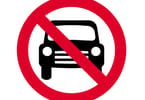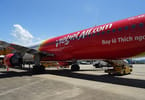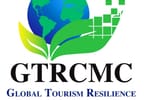Every sector of business, including hospitality, faces momentous challenges stemming from the global recession. Occupancy is suffering, and all indications are that the deterioration will persist for quite some time. The latest Blue Chip Economic Indicators Report, a composite forecast of 52 economists, projects the worst recession since World War II with an upturn not beginning until late 2009. Some predict it may take longer.
PricewaterhouseCoopers estimates 2009 average U.S. hotel occupancy will fall to 56.5 percent — a decline of 5.2 percent from 2008 and the lowest in more than 20 years. More importantly PwC projects RevPAR to decline 11.2 percent this year. It is hard to imagine any hotel getting through this year unscathed. In fact, many hotels will see occupancy and RevPar decline much more than the 5.2 percent and 11.2 percent averages predicted by PwC.
There will be a substantial number of underperforming hotels in the months ahead. Likewise there will also be hotels that perform significantly above the PwC “norms.” While occupancy and revenue for these hotels may dip, it will be significantly less than competitors and their subsequent recovery from this recession will be much quicker. These hotels will capture more than their fair share of profitable customers still traveling.
How will this be accomplished? What are these overachieving hotels doing to outperform competition? One of the answers can be found in the way they approach marketing. Here are six strategic drivers of the marketing programs you are likely to find in more successful hotels. These are what will help them outperform their competitors during this recession and beyond.
Focus More on Delivering Value
In past downturns, many hotels slashed room rates in an attempt to fill beds. Remember the 2001/02 recession where inventory was literally dumped into the emerging online travel agencies? Following this tactic results in both short- and long-term damage, for two reasons according to Smith Travel Research:
First, lowering rates to stimulate demand and increase occupancy is extremely difficult when the tactic is so easily copied by competition. You have to make up a whole lot of occupancy points to break even when you and your competition are both lowering rates. And in these recessionary times with slack demand that is a tough (some say impossible) proposition.
Proof that rate reductions are easily copied: According to John Lindelow owner of Travel Hawaii, “3rd Nite Free is the new norm. We now have 33 hotels offering 3rd Nite Free.” The impact on RevPAR will be substantial.
Second, and most importantly, cuts to ADR are difficult to recoup when travel conditions eventually improve. After dropping room rates, attempts to restore them to previous levels are likely to be met with significant resistance. The ability to benefit from an improving economy will be delayed.
While a few well positioned and prepared hotels were able to make it through the 2001/02 recession without significant price reductions, today’s economic downturn is far more serious. This one isn’t localized — it’s global — so even the more successful hotels will need some rate flexibility. Instead of “slashing” rates, however, they will
focus more on reducing rates slightly while adding value for their guests.
This requires creativity and focus for the hotel and its marketing partners when developing marketing programs and promotions. The creativity is in the packaging and the focus is on the customer.
Begin by listing all the possible value-added services and amenities available. Look for those that can enhance the guest experience for little or no cost to you — free upgrades, late check-outs, a $50 resort or drink certificate, free parking, etc. Then think “outside the hotel.” Look to partners to help out. Negotiate a free day at a local car rental company, two dives for the price of one from a local water sports operator.
Make sure your offerings are delivering value and then package them so they stand out from competition. Creative genius has never been needed more than now.
Maintain Marketing Pressure
Several professors at the prestigious Wharton Business School recently offered a crash course on recession marketing. Their recommendations:
• Don’t slash advertising – Companies that slash advertising in a downturn, leave empty space in consumers’ minds for aggressive marketers to make strong inroads. They go on to cite a McGraw-Hill Research Study of 600 companies through the 1981-1982 recession that showed those that advertised aggressively had sales
256 percent higher than those that did not.
The way consumers learn and retain information probably hasn’t changed much since 1982 so, when you are out of sight you are still out of mind.
What has changed drastically however is the way people consume media and access information. Unlike 1982 where advertising meant TV, radio, magazines and newspapers, we are now living in a wired world. As such hotels need to make sure their web sites are performing at peak efficiency, their search engine optimization
program has them listed on the first or second page of keyword searches and they are using all the Internet tools as they fit within their marketing program to maximize visibility on the web.
• Communicate value — During recessionary times people are looking to get the most value they can from every dollar they spend. Value, therefore is an important message to build into marketing campaigns in a downturn.
• Create emotional appeals – This is especially important to marketers of luxury goods and services. They should use emotional appeals, emphasizing the need for emotional release or comfort in difficult times.
For years Las Vegas attracted customers by communicating it was a place to indulge oneself in extreme behavior. Good strategy in good times — not a good idea today. So the LVCVA has recently launched “Vegas Bound,” a new campaign urging hard-working Americans to take a break so they can return home and be more productive — a much more emotional and relevant appeal.
In research more specific to hospitality, Deloitte’s 2008 publication “Weathering the Economic Storm, How Hospitality Companies can Thrive in Challenging Times” explains how strengthening the marketing and sales functions could reduce the financial burdens of hospitality companies and lead to stronger customer relationships in the long run.
Manage Customer Relationships
In 1996 Frederick Reichheld published his now famous book, “The Loyalty Effect.” Today, the vast majority of business executives accept his once-radical theories that — “loyalty makes economic sense” and that — “achieving profitable growth is impossible without building a loyal base of customers.” He showed that companies with the most loyal customers are also the most profitable.
So while many hotels focus primarily on attracting new customers — heads in beds — the more profitable ones have a balanced approach toward customer acquisition and retention and are actively managing customer relationships to create loyalty. In the end they look to maximize the lifetime value of each guest.
Managing customer relationships is becoming increasingly sophisticated and requires a tremendous amount of coordination and marketing discipline. It also requires a global plan for how all the various marketing disciplines will work together to help move individuals through the customer lifecycle from awareness to loyalty.
Having various marketing suppliers (ad agencies, PR, DM, etc.) providing services on an ad hoc basis with little or no central coordination of tactics, timing or messaging simply won’t cut it in today’s environment. The larger and more successful hotels will have the cross-functional discipline needed to coordinate all marketing activities for CRM in-house. Smaller, yet still successful hotels will have a marketing partner
who understands and can implement CRM for them.
Loyalty (and the resulting profitability) doesn’t just happen – it comes as a result of:
• Creating a strong emotional bond with prospects and guests over time. There may be years between visits but loyal guests do return and give you referrals.
• Strategic direct marketing that is highly targeted, personalized and delivers relevant offers to your audience (whether it’s a customer or a prospect). It is action oriented and highly disciplined thinking not found in most traditional communications companies.
• Using advanced CRM technology that fortunately has become affordable for even small hotels today.
Build a Centralized Marketing Database
The foundation for Customer Relationship Marketing as presented in the chart above is a centralized marketing database. This is not your PMS, which only has customer data and is designed more for accounting than for marketing purposes.
Fortunately, centralized marketing programs that can easily and affordably synchronize with your PMS are now available. These systems have the advantage of merging both customer and prospect information for launching communications. Importantly, accountability is built in so you can measure the effectiveness of your CRM initiatives.
Understanding the ROI on each program allows you to continually refine your marketing efforts so your budget is only spent on programs that produce favorable results.
Get Strong Direct & Database Marketing Support
Direct marketing (both online and off line) is a science for managing customer relationships throughout the customer lifecycle. Being a specialized discipline, it is vastly underutilized by most hotels.
Hotels need to build their marketing program on a foundation of strong direct marketing and database marketing disciplines. To realize the full benefits of CRM, direct marketing thinking must drive strategy — not be a subordinate “add-on.” In a recent study of over 1,200 marketers MarketingSherpa and ad:tech reported the most effective and efficient marketing weapon companies have/use is email to existing customers.
Don’t be fooled. Many hotels are sending emails and promotional post cards as a short-term tactic to build immediate sales. Successful hotels are personalizing emails, offering relevant information, following direct marketing best practices to build immediate sales and long-term relationships with customers and prospects. They are using each communication to increase loyalty and maximize the lifetime value of each guest.
Few communications companies have direct marketing as a core competency. Your challenge if you want to benefit from CRM – find one that does.
Maximize Word-of Mouth Advertising
Pick up any research on advertising effectiveness and you’ll see word-of-mouth at the top of the list – oftentimes well ahead of whatever makes it to the #2 position. One of the nicest things about word-of-mouth is it is essentially free!
So when advertising budgets are under so much pressure to perform, take advantage of something that costs you nothing and performs better than anything else.
A number of recent consumer research studies show online customer reviews are
becoming increasingly influential in motivating people to purchase. In fact one published by Rubicon Consulting shows online reviews in the #2 position behind word-of- mouth.
The implication is obvious — to truly maximize the benefits of word-of-mouth advertising you must focus on generating more and more positive offline and online guest reviews. You need to embrace outlets like TripAdvisor as a positive marketing force and develop comprehensive strategies so your hotel reviews provide a competitive advantage.
Look at it from the traveler’s perspective. The majority want to read other traveler’s reviews. Do you offer reviews on your hotel’s web site? How many reviews do you have? How highly do you rank? Are you on the home page (Top 8) for your destination?
It’s time to develop a key influencers strategy, set goals and measure results.
Summary
Successful hotels know that outperforming competition in a recessionary environment is an absolute imperative!
Performing on average is projected to result in a RevPAR decline over 11 percent vs. last year. You have to be above average.
Accomplishing that takes a strategic vision and the application of both short- and long-term initiatives to realize that vision. It also takes a healthy dose of fortitude and a belief you will do better than competition by implementing a disciplined CRM program to garner more than your fair share of destination travelers.
Customer Relationship Marketing when implemented properly can significantly enhance your chances of success. It will create a strong base of fiercely loyal customers — the proven ingredient to profitable growth.
Madigan Pratt is managing director of Madigan Pratt & Associates, Inc., an innovative CRM company dedicated to acquiring and retaining profitable customers for luxury hotels. Prior to founding MP&A in New York two decades ago he held senior management positions overseeing marketing communications for several Fortune 500 companies. He has served on the Board and Executive Committee of the Caribbean Tourism Organization and is past Chairman of the Association of Travel Marketing Executives and writes a popular hospitality marketing blog — www.HospitalityMarketingBlog.com
Do you think you are an expert on tourism matters? Now is the time to share your knowledge. Send your article(s) to the email address: [email protected]
WHAT TO TAKE AWAY FROM THIS ARTICLE:
- Negotiate a free day at a local car rental company, two dives for the price of one from a local water sports operator.
- The creativity is in the packaging and the focus is on the customer.
- Look for those that can enhance the guest experience for little or no cost to you — free upgrades, late check-outs, a $50 resort or drink certificate, free parking, etc.






















